#participles
Text

Participles got you down? Feeling lost in a labyrinth of verb-adjective hybrids? This FREE guide on Patreon busts those grammar myths and makes participles your comrades in clear communication! ✊
Link: Participles Demystified
Feeling generous? For just $2 a month on Patreon, you can fuel more awesome grammar lessons for you and your fellow Russian learners!
11 notes
·
View notes
Text
Αγαπημένος: loved one and favourite
Αγαπημένος is a passive participle of the verb αγαπώ (= I love). As you may know, participles are fully declinable in modern greek.

So, one meaning of this participle is the "loved one". It can be used for a relationship that is strong, ie relatives, friends, partners, relationship etc.
Αυτό είναι ένα πολύ ωραίο δώρο για τους αγαπημένους σας. = This is a great gift for your loved ones / Este es un gran regalo para tus seres queridos.
But this is not this participle's most common use. Its primary use is to convey the meaning of favourite in english or favorito in spanish.
Αυτό το ποίημα είναι από τα αγαπημένα ποιήματα της μητέρας μου. = This poem is one of my mother's favorites. / Este poema es uno de los poemas favoritos de mi madre.
So, in english and spanish, you favour something over other things, whereas in modern greek you love it.
#spanish#language#greek#modern greek#english#langblr#favourito#favorite#participles#meaning#alangblrofsorts
2 notes
·
View notes
Text
I took a skill test to get a job as a proofreader and it asked me things like how to spell words. Fine. But then it asked me about diagramming sentences and GIRL no.
I just guessed because hell if I know what participles are. I just know how to write. I don’t know the why or how of it! It’s just a FEELING.

A dangling pinniped
15 notes
·
View notes
Text
PASSIVE PARTICIPLES IN RUSSIAN
Participles are verb forms that function like adjectives.
Present Passive Participles
These are formed from imperfective verbs and refer to 'which is being done', i.e: 'the cake, which is being baked'.
To form this participle:
Take the first-person plural form of an imperfective verb.
Add the proper adjectival ending (-ый/-ая/-ое/-ые)
As the participle refers to an action being done simultaneously as the action of the main verb, it must agree with the noun it describes of gender, number and case:
фильмы, любимые народом films loved by the people
However, this aspect is rare and used mostly in literature or academic texts.
Past Passive Participles
These are formed from (mostly) perfective verbs and express the past tense of the above, following the same rules, though they can be used both in short and long form.
To form the long form:
For verbs ending with -ать or -ять:
Take off the ending -ть
Replace with -нный to produce a participle ending in -анный or -янный (-ая /-ое/-ыe)
For verbs ending in -ить, -еть or -сти:
Find the first person singular (я) form and take off the -у or -ю
Add the ending -енный or, if stressed, -ённый, to a stem ending in a consonant
For most verbs ending in -ыть , -оть, or -уть:
Remove the soft sign -ь
Add the adjectival ending (-ый/-ая/-ое/-ые)
To form the short form:
For most verbs ending -ать or -ять:
Remove the -ть
Add -н for masculine, -на for feminine, -но for neuter and -ны for plural
For most verbs ending in -ить, -еть, or -сти:
Find the first person singular (я) form and remove the -у or -ю
Add -ен or -ён (depending on the stress in the 1st sing. form)
For most verbs ending in -ыть, -оть, or -уть:
Remove the soft sign (-ь)
Add the endings: -т, -та, -то, -ты.
#langblr russian#learning russian#russian#learning languages#long post#langblr#russian grammar#participles#russian participles
13 notes
·
View notes
Text
I despise Ancient Greek participles…
Oh yeah it’s a present, active, transitive, participle in the masculine nominative singular
How many identifications can one verb need?!?
#I wanna die#I can’t figure out how to translate ιστάς into English if anyone wants to help#ancient greek#participles
0 notes
Text
Participles and Participial Phrases
Social Media Post:Social Media Post: 📚 Unleash the power of language! 🧐 Dive into the world of #Participles and #ParticipialPhrases to transform your writing. Did you know that mastering participles can add depth and vividness to your sentences? 📝✨
Whether you're a seasoned writer or just starting your linguistic journey, our #GrammarTips will make grammar your new favorite adventure. Join us on this grammatical expedition! 🌐📖✍️
Explore the nuances of language with us, and let's conquer the world of #EnglishGrammar together! 💪🤩 #LanguageLearning #WritingSkills #Linguistics101 #GrammarGeek #LearnEnglish
https://www.elafree.com/2022/03/participles-and-participial-phrases.html
#GrammarNinja#LanguageLearning#Participles#ParticipialPhrases#GrammarTips#WritingSkills#EnglishLanguage#GrammarGeek#LearnEnglish#Linguistics101
0 notes
Text
Subordinate Clauses

Understanding Subordinate Clauses and Their Varieties
A complex sentence, by definition, consists of one independent (main) clause and at least one dependent (subordinate) clause.
A subordinate clause, also known as a dependent clause, is a group of words that has both a subject and a verb but cannot stand alone as a complete sentence.
It relies on a main clause (independent clause) to provide a complete thought.
Subordinate clauses can be categorized into three main types based on their grammatical function within a sentence: noun clauses, adverb clauses, and adjective clauses.
Each type serves a different purpose and modifies or complements the main clause in distinct ways.
Noun Clauses:
A noun clause is a group of words that functions as a noun within a sentence.
It can serve as the subject, object, or complement of the main clause.
Example:
What she said is important(subject).
I don't know what to do (object).
The fact that he succeeded is amazing (complement).
Adverb Clauses:
An adverb clause is a group of words that functions as an adverb within a sentence.
It typically provides information about the time, place, manner, reason, condition, or degree of the action in the main clause.
Example:
While I was studying, my friends were playing outside (time).
She sings as if she were an angel (manner). Because it was raining, we stayed indoors (reason).
Adjective Clauses (Relative Clauses):
An adjective clause is a group of words that functions as an adjective within a sentence.
It provides additional information about a noun or pronoun in the main clause.
Example:
The book that I borrowed from the library is fascinating (modifying the noun book).
The person who helped me is my neighbor (modifying the noun).
Finite Subordinate clauses:
A main clause, or independent clause, is finite. In grammar, a finite clause is one that has a subject and a finite verb.
A finite verb is a verb that is inflected for person and tense and typically indicates a completed action or state.
A subordinate clause can also be finite.
A finite subordinate clause is a group of words that contains a subject and a finite verb but cannot stand alone as a complete sentence.
The finite verb in a subordinate clause is inflected for person and tense, just like in a main clause.
Here are examples of finite subordinate clauses:
Adverbial Finite Subordinate Clause (Time):
After the rain stopped, we went for a walk.
Adjectival Finite Subordinate Clause (Relative Clause):
The woman who lives next door is a doctor.
Nominal Finite Subordinate Clause (Subject):
What you said surprised everyone.
Adverbial Finite Subordinate Clause (Reason):
Because she studied hard, she passed the exam.
Adjectival Finite Subordinate Clause (Conditional):
If you finish your homework, you can go out.
Nominal Finite Subordinate Clause (Direct Object):
I believe that honesty is the best policy.
Non-Finite Subordinate clauses:
Subordinate clauses, nevertheless, can be Non-finite.
Non-finite subordinate clauses are characterized by the absence of a finite verb.
A finite verb is a verb that is inflected for person and tense and is typically found in main clauses, marking agreement with the subject and providing information about when the action occurs.
Non-finite verbs, on the other hand, lack this inflection for person and tense.
Let's explore why the verb in non-finite subordinate clauses is referred to as such:
No Marking of Agreement and Tense:
In non-finite subordinate clauses, the verb remains in its base or root form (infinitive, gerund, or participle) and does not change to reflect the person or number of the subject.
It does not carry information about when the action takes place.
For example:
She wants to visit the museum. (Infinitive, non-finite)
She visits the museum. (Finite)
Cannot Be Modal Auxiliary:
Non-finite verbs cannot function as modal auxiliary verbs.
Modal auxiliary verbs (such as can, could, will, would) are used with the base form of a main verb to express modality, possibility, necessity, etc.
Non-finite verbs do not have the same modal properties.
For example:
She can visit the museum. (Finite)
She wants to visit the museum. (Non-finite)
Subject Is Not in Subject Case:
In non-finite subordinate clauses, the subject of the clause, if present, is often in the objective case or implied, and it does not affect the form of the non-finite verb.
For example:
I saw him running in the park. (Objective case)
She heard them singing in the choir. (Implied subject )
Nonfinite Subordinate clauses Types :
There are several types of nonfinite subordinate clauses, including infinitives, gerunds, participles, and verbless clauses.
Infinitives:
Infinitive clauses often function as nouns, adjectives, or adverbs within a sentence, serve as the direct object of the verb.
She brought a gift for him to open.
They worked hard for the team to succeed.
They gathered resources to build a shelter.
She bought ingredients to bake a cake.
They helped him leave. (bare Infinitive)
Participles:
Participial clauses function as adjectives, providing additional information about a noun.
The children, playing in the park, laughed joyfully.
The stormy weather, frightening the animals, forced them into hiding.
The story, written by a famous author, captivated the readers.
The exhausted hiker reached the summit, guided by an experienced mountaineer.
Gerunds:
Gerund clauses function as nouns, often serving as subjects, objects, or objects of prepositions.
Gerund clauses, being a type of non-finite subordinate clause, can sometimes have the subject omitted, especially when it is the same as the subject of the main clause.
Here are examples:
He's not very good at remembering names.
She wrote an essay about exploring ancient civilizations.
I was surprised at finding my lost keys.
I was surprised at learning about the sudden change in plans.
They asked him about joining the upcoming project team.
Verbless Clauses:
Verbless clauses, as the name suggests, lack a finite verb.
Instead, they often start with a present or past participle, an infinitive, or a prepositional phrase.
These clauses can function as adverbials, providing information about time, manner, or condition.
Examples:
Born in Paris, she developed a love for art.
Without hesitation, he jumped into the water.
His passion for painting evident, he spent hours in the studio.
With a smile on her face, she accepted the award.
Subordinate Clauses
Complex Sentences
Compound Sentences
Imperative Sentences
Subject Pronoun/ “One” and “They” as subject meaning
About Phonetics
Read the full article
#adjective#adverb#clauses#complex#dependentsentence#finitesubordinateclauses#gerunds#infinities#lackofinflectionforpersonandtense#nonfinitesubordinateclauses#noun#participles#sentence#subordinate#verblessclauses
0 notes
Text
ship ask game 😁1 Who would be first to to bite down anc consume the flesh of the other, euphoric in the taste and the heft and the slide of the blood 2. who is the ant and who is the ophiocordyceps fungus? 3. who is the dog and who is the master? 4 when the roles are blurred or reversed who would be first to die and how? would it be by bulletwound? the phallic blade? strangulation? 5. Cocaine or Heroin? 6. who licks up the other’s cigarette ash? 7 who is julius caesar and who is brutus? 8. who is jesus and who is judas? 9. did jesus want it? did julius caesar know it was coming? are the betrayed ever proud? 10. who is irrumatus and who is irrumans? who is pedicatus and who is pedicans? 11. did they ever kiss and why not? 12 if they are two sides of the same coin who is heads and who is tails? 13. and if the coin was the holey dollar? 14. And if the dog bit back? 15 and if the dog bit back? 16 and if the dog bit back? 17 and if the dog bit back? 18 and if the dog bit back? 19 and if the dog bit back? 20. Who buys the other flowers?🥰
#feel free to proliferate this as either poetry or a real ask game it is both. And if you follow my sideblog you know who this is about#the latin participles mean who is facefucked/facefucking and who is sodomised/sodomising#my poetry#my writing#idr if theres any more posts in that tag maybe i should write more. this was fun.#it IS entirely inspired by and about ollie and malcolm the thick of it. for posterity.#its giving hannibal and will as well tho#shut up ulrike#shipping#fangirl#ship ask game#drug tw#popular#greatest hits#cordyceps
9K notes
·
View notes
Photo

NON-FINITE VERBAL FORMS IN PĀLI - PARTICIPLES, ABSOLUTIVE AND INFINITIVE
https://www.academia.edu/82742390/NON_FINITE_VERBAL_FORMS_IN_P%C4%80LI_PARTICIPLES_ABSOLUTIVE_AND_INFINITIVE

Pāli is an Indo-Aryan language that was devised specially to transcribe in the third century BCE the oral preaching of Gautama Buddha (who lived in the sixth-fifth centuries BCE) in Lumbini, Shakya Republic (present-day Nepal). Pāli is not so much an artificial language as a language adapted to the particular discourse it tries to transcribe and derived from probably several closely related other Indo-Aryan languages with Sanskrit being kept in the background all the time. Pāli has the originality not to be attached to a writing system so that it can be written with any of the writing systems in use in the Indian subcontinent and in Southeast Asia, including, in more recent times, the Latin writing system extended for some diacritic elements. We have to understand Buddhism is a particular development of old Sanskrit classic Vedas with the declared ambition to differentiate itself from the various trends and branches of Vedic and ascetic preaching that produced Hinduism. The main difference is the refusal of any godlike creator of the universe.
I will study here the fundamental role of the four participles, the absolutive and the infinitive in the building of this predicatory discourse.
The four participles are adjectival or nominal non-finite verbal forms predicatively expanding either noun phrases or verbal phrases with four possible forms and values:
1- The past participle of an action seen as fully completed is an adjectival expansion of a noun phrase.
2- The active past participle is an adjectival expansion of a noun phrase seen as the agent of an action that has been fully completed.
3- The present participle is an adjectival expansion of a noun phrase with an action that is seen in progress, hence partly completed and partly virtual.
4- The future passive participle is an adjectival form expanding a noun phrase with an action that should, must, or could be done with the contradiction between the injunctive or optative modalization and the passive completion attached to a noun phrase which is the virtual actant who should, must or could carry this completed passive value.
The absolutive (at times called gerund) is a non-finite form that expresses an action or state that, at the time of utterance, has been completed, has been credited to the main actant of the main clause of the utterance or the general situation conveyed by the utterance, and whose completion and merit-crediting to the main actant make the action of the main clause of the utterance possible, and without which this very action is not possible.
The infinitive is a simple non-finite verbal expansion of the main clause of the utterance attached to one particular actant of this main clause or to its verb to which it is subservient. It expresses the action in its fullness, though with various values in the sentences as for virtual completion, partial completion, or total completion.
What kind of mapping of the inner time of these non-finite forms can we see and how can the passive/active and injunctive/optative dimensions be integrated? Are we in langue, or are we in discourse? Is such predicatory discourse dealing with time, both universe and inner times, the same way as any reporting discourse?

Éditions La Dondaine 2022

0 notes
Text

Hey gang, it’s your old pal Neo here. If you know me, it’s probably from one of the several very stupid TF2 comics I’ve posted to Tumblr.
However! I am also an English major (unfortunately). One who has read millions of words worth of fanfiction in their life. I have been part of the Sherlock, BNHA, Disco Elysium, and, of course, TF2 fandoms; I’ve been around the block.
The further I’ve progressed into my English education, the more I’ve noticed which mistakes are the most common in fanfiction. Many of them are easily fixable; writers just need to be pointed in the right direction.
“Neo! Does this mean you think people shouldn’t be allowed to post their works online without a background in formal English education?”
Of course not! I can explain why if you’d care to venture below the cut with me!
Yes, I will explain how to use commas.
It’s important to note that this is NOT a post about formal writing. You aren’t writing an essay. Please, for the love of god, do not write fiction like you’re writing an essay.
There are no stakes to writing fanfic. No one is going to get hurt if an author doesn’t know what a dangling participle is. One of my favourite things about fanfiction is that it’s one of the only art forms left that’s done exclusively for fun! You should write what you enjoy, and share what you make with like-minded people.
What I want to do is provide assistance as best I can to writers who want to improve their fundamentals without having to take the same university courses I did. Nobody is going to be getting a formal education to write fanfiction unless they’re ridiculously dedicated, and I’m not expecting that of anyone.
The point I need to stress is that knowing these grammar fundamentals can instantly improve the flow of your writing. Punctuation is a ridiculously important tool for writers, ESPECIALLY in fiction. Commas, semicolons, and full stops (including periods, exclamation points, and question marks) steer the pacing in the reader’s mind; did you notice how your brain stopped for a second after that semicolon? I can show you how to do that.
You may be wondering why I’m going through so much effort to teach all of this to strangers on the internet. The answer is that I enjoy sharing this knowledge with others and helping them grow. By seeing this, my goal is to help you become more proficient at self-editing. Showing this to people who actually want to learn will, hopefully, benefit the community as a whole, and I think that’s very worth it.
Also, while this post is obviously themed around TF2, the points I’m making can be applied to any fiction. Grammar is for everyone, and the church of the semicolon always has room for more initiates.
Also also, as an edit, I should clarify that this is meant to cover the more objective facets of self-editing, which is why I'm mostly covering punctuation. Maybe I'll do another post about using adjectives someday.
With that out of the way, let’s get going!
I’ve teamed up with several English teachers (real ones! One of which may or may not be my mom!) and an editor to gather a list of the most common problems we see in amateur fiction. This post is going to be split into three broad sections: apostrophes, commas/semicolons, and other common problems.
The apostrophe
This section is short, but it holds weight. Other than commas, apostrophes are the most typoed grammatical tool in any fanfiction I’ve edited. This is because, much like the rest of English, the rules surrounding them can be annoying and inconsistent.
Apostrophes have two main uses: possessives and conjunctions.
A possessive is a word that denotes the ownership of one thing over another. The vast majority of the time, this is done using an apostrophe and an S.

There is, however, one glaring exception to this rule, and it’s the bane of my existence.
When denoting possession of an object over something else while using the pronoun ‘it,’ you do NOT add an apostrophe before the S.
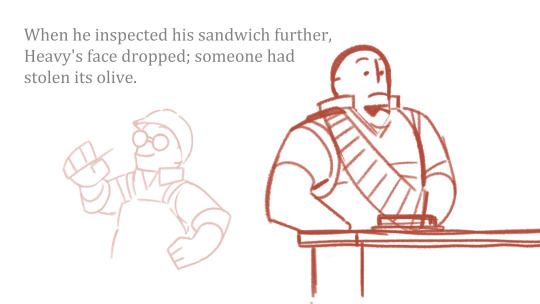
A conjunction, on the other hand, is when a writer uses an apostrophe to combine two words. The following are examples of common conjunctions:
What’s (what is)
They’re (they are)
It’s (it is)
Conjunctions are not often used in formal writing. Thankfully, we aren’t dealing in formal writing. Go crazy.
Time for a lightning round of the most commonly mistaken for each other possessives and conjunctions!
Your is possessive. You’re is a conjunction of ‘you’ and ‘are.’ When you can’t decide which one to use, imagine replacing it with ‘you are’ and seeing if it makes sense. If it doesn’t, use your.
Their is possessive. There indicates a location. They’re is a conjunction of ‘they’ and ‘are.’

The comma and the semicolon
You knew it was coming. I knew it was coming. It’s time to talk about commas.
Commas and semicolons are far and away the biggest grammatical hole in the toolset of fanfiction writers everywhere. They’re often treated like the rules surrounding them are complicated and difficult to understand, but the exact opposite is true!
The big issue I’ve heard time and time again is that the rules of commas are often explained through metaphor instead of example; this means that writers everywhere have slightly different ideas of how you’re supposed to use them. The fact of the matter is that, yes, there are correct and incorrect ways to use commas. Knowing when they’re appropriate and when they aren’t is easily the fastest way to bring your writing from looking amateurish to sounding professional and experienced.
In order to know how to use a comma, you must first understand the difference between a dependent and an independent clause.
An independent clause is a section of writing that functions perfectly well as its own sentence. It MUST have both a subject and an action/verb.
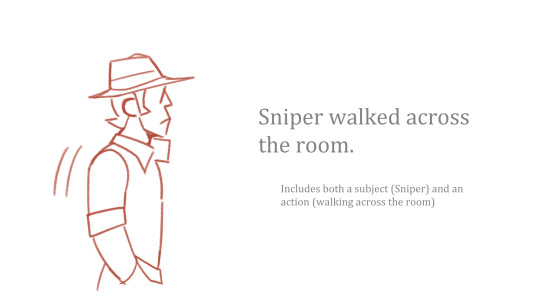
A sentence without an independent clause is known as a fragment, and they’re the bane of English teachers with highlighters everywhere.
A dependent clause is a section of writing that does not have both a subject and an action; it does not function as its own sentence.

Now, let’s say you want to combine the two. When joining a dependent clause to an independent clause, the order in which they are placed is crucial to whether you use a comma or not.
When joining a dependent to an independent with the independent clause first, you do not need to use a comma.
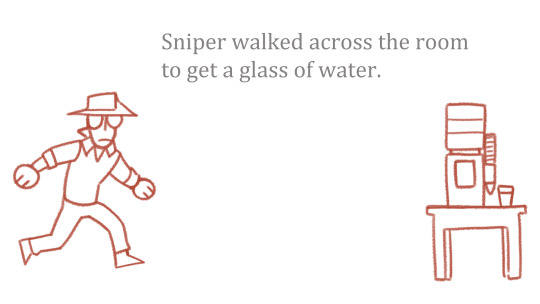
When joining a dependent to an independent with the dependent clause first, you MUST use a comma.
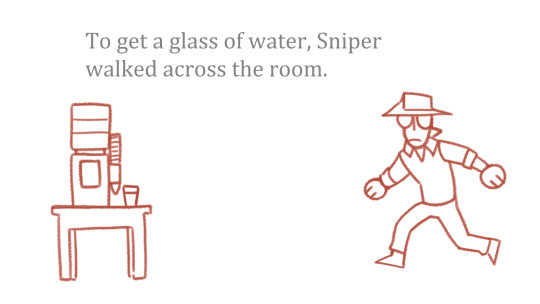
Keep in mind that, if one strives for total grammatical perfection, all narrative sentences MUST have an independent clause. This, however, does not apply to dialogue. Human beings do not think about whether what they’re saying is a dependent clause, and neither would the vast majority of fictional characters. Don’t be afraid to break the rules of grammar as long as it’s contained within quotation marks.
Alright, that’s the easy part. Time to learn about joining two independent clauses. It’s semicolon time, baby!
If you join two independent clauses without properly using a comma or a semicolon, it is a run-on sentence. You do not want these in your writing. They’re awkward to read and mess up the flow.

When joining two independent clauses, you can use EITHER a comma or a semicolon. You just need to follow these rules:
If you’re joining two independent clauses with a comma, you MUST use a joining word (and, but, so, etc.) AFTER the comma.

If you’re joining two independent clauses with a semicolon, you do NOT need to use a joining word.

Did you know that a sentence with a comma counts as its own independent clause? This means that you can make a sentence that includes a mix of both without it being a run-on! Just make sure that, no matter what, the semicolon is between two independent clauses.
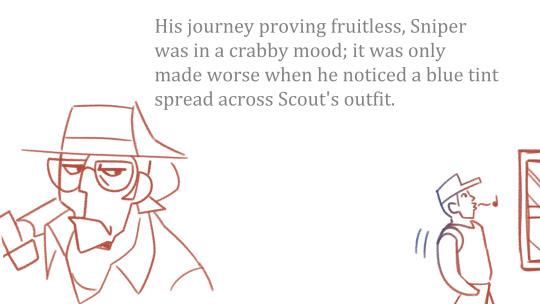
Still, try not to write more than two clauses in a sentence too often. Sentences with a lot of punctuation are very attention-grabbing, but shouldn’t be overused. Full stops aren’t your enemy and variety is the spice of life.
It’s also important to remember that you should avoid using more than one comma in a clause (with the exception of the rule below). That part loops back to the 'avoiding run-ons' bit.
It’s really that easy!
Commas are also used in informal writing to inject a separate thought or descriptor mid-sentence without breaking the flow by adding a period. This is often used when describing the perspective of a character experiencing something in a story, but not (usually) when using omniscient perspectives.
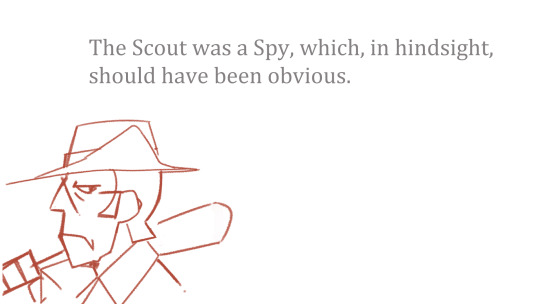
The final issue I frequently see with commas in fanfiction is in regards to dialogue. Sometimes you end it with them, and sometimes you don’t. What gives?
Well, my friend, the answer is, thankfully, much simpler than the previous section.
When following dialogue with a dialogue tag, use a comma instead of a full stop. If you’re continuing the previous sentence after the tag, use a comma after it as well.
Note that a dialogue tag is a short phrase that identifies the speaker. It isn’t a complete sentence on its own.
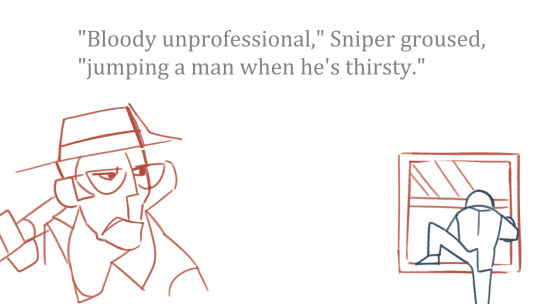
When following dialogue with an action that does not serve as a dialogue tag, use a full stop instead of a comma.
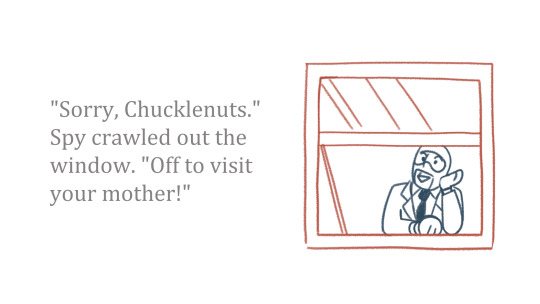
Other common problems
This section is dedicated to putting specific grammatical errors into words, along with how to solve them.
Not sticking to the chosen point of view
Always choose your point of view before you start. Is it in the first, second, or third person? Is it omniscient or limited? Does the point of view switch during the story?
First person perspective is told as if the POV character is directly describing their experience to the reader. The character uses I and we to describe their own actions.
Second person perspective is told as if the reader is a character in the story and their actions are being described to them. This is the rarest, and the most difficult to write.
Third person perspective is the most common and the simplest to write. The events of the story are a separate entity from the reader altogether and the narrator uses they/he/she/it pronouns for characters.
Omniscient perspective means the narrator of the story knows all, including the thoughts and feelings of each character.
Limited perspective means the narrator of the story only knows what the POV character knows.
Past and present tense
When you decide between writing a story in past or present tense, it is crucial that you do not switch between them unless it is narratively intentional. Reading a past tense story that mistakenly switches to the present tense is like being pulled out of the room someone is telling a story in and suddenly taking part in it yourself. It’s disorienting and gives the reader unwanted pause.
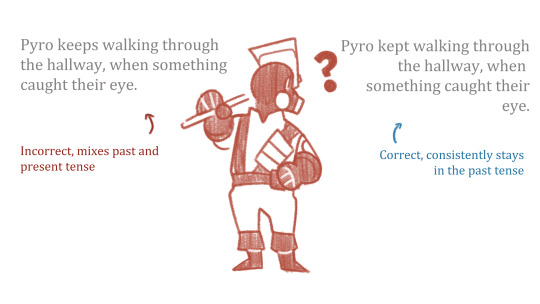
Overly-long paragraphs
A common adage spread by English teachers is that most paragraphs should be at least eight sentences long. This is great advice for beginner essays. You’re writing fiction.
If you have a new thought, start a new paragraph! A concise and well-read single-sentence paragraph is infinitely better than one that drags a thought for too long. Aim to have a blend of paragraph lengths when you write, alternating between the descriptive and the punctual.
Dangling participles
A dangling participle is when a word is used to describe a noun that isn’t actually present in the sentence. Much like how a sentence without an action isn’t grammatically correct, neither is a sentence without a subject.
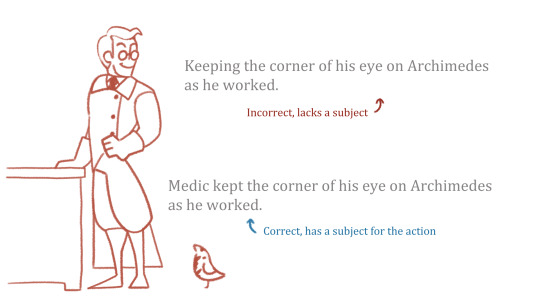
Malapropisms
A malapropism is when an author mistakenly uses one word or phrase instead of another similar-sounding one. I’m not about to list every single malapropism ever made, but these are the ones I notice most often:
To comprehend is to understand something, to apprehend is to arrest someone, and to be apprehensive is to be anxious or fearful of something bad happening.
Could care less means you do care. Couldn’t care less means you don’t.
A lot means a large amount of something. Alot isn’t a word and you shouldn’t use it.
The only real solution to using malapropisms is to make sure you fully understand any words you use in your writing. Never guess, and make sure you always google it. Having beta readers also helps.
If you made it this far, congratulations! You now know the most common errors in amateur fiction and how to solve them! Thank you for listening to me complain for two thousand words.
The most important thing to remember is that it’s okay to make mistakes. First drafts are always gonna be a little bad. The real key to success is knowing what your end goal is, and how you plan on achieving it. Here’s hoping this was a helpful tool for that!
Shoutout to @salmonandsoup for helping me think of the list of issues to address! You're a real one. Also shoutout to my mom, who doesn't have Tumblr. Also the third person. You know who you are.
#grammarposting#tf2#grammar#educational shitpost#writing#fanfic#fanfiction#writing advice#fanfiction writing advice#team fortress 2#tf2 fanfiction#bro your participle is dangling
224 notes
·
View notes
Text
Have you studied participles (причастия) in Russian?
I found that often, participles (причастия) are not mentioned much in Russian textbooks, or only mentioned as part of a written and, probably, bookish style.
This is not entirely true. Participles are often used conversationally as well. Have you ever studied participles in formal Russian classes or independently?
8 notes
·
View notes
Text
i've been dying for a poll option ever since i saw my followers' answers to that text post from february 2022 asking people whether they pronounce beloved as "be-lov-ed" or "be-loved". many people were emphatic about only using one option, and many others use both but were not always able to articulate when they use 2 syllables vs. 3. so out of the goodness of my heart and my insatiable lust for knowledge i have gone through the notes on that post and written down some likely contenders! you're welcome!!!!
BEFORE YOU ANSWER! think about how you would pronounce beloved in the following syntactic contexts:
noun, talking directly to the beloved: hey there beloved
noun, talking about rather than to the beloved: my beloved lives in a pineapple under the sea
adjective in a noun phrase: my beloved x lives in a pineapple under the sea
verb participle: x is beloved by y
okay poll time! there are no wrong answers!! and apologies in advance if i didn't capture your truth, i only had 10 options and life is a rich tapestry!!
#oh man i could have easily come up with another 5-8 options but they cap you at 10. which is probably a good thing#one person said they say 'my be-lov-ed x' but 'my much be-loved x'. the only difference being the 'much'. couldn't fit that one on here#someone else said they use 3 syllables in a possessive noun phrase (my be-lov-ed x) but 2 if it's not possessive (the be-loved x)#one person said it depends on whether it's past or present & i wasn't exactly sure what that meant. 'x is beloved' vs. 'x was beloved'?#i also think there's likely a distinction for some people between 'x was beloved' and 'x was beloved by y' but couldn't get into that#oh and then there's 'beloved by' vs. 'beloved of'#and since some of these are syntactic distinctions and some are semantic or otherwise i'm sure there's a whole matrix of combinations#like '3-syll noun if it's a person but 2 if it's a thing. 2-syll adjective/verb participle for both people and things'#that was beyond the scope of this poll lol#but mostly why i'm so curious is because people will very emphatically say something that might not mean what they think it means#like for instance i got the impression that at least some of the people saying 'be-lov-ed when i'm talking to them‚ be-loved when i'm#talking about them' actually mean they use be-lov-ed as a noun and be-loved otherwise#and some of the people saying 'always 2 syllables' probably have exceptions that they weren't thinking of at the moment#in particular 'dearly beloved'#and i'm very curious to know if 3-syllable people still use 3 syllables in the construction 'he was beloved by all'#so i think people's answers might change when given a list of more detailed options#fun with pronunciation#prosody#my posts#also i stressed for so long about what to call beloved in the 'x is beloved by y' construction#but settled on verb participle because i think it's fairly descriptive and accurate#so hopefully that's not too confusing? like it is a verb participle but for a verb that doesn't exist anymore (other than the participle)?#and even in 'my beloved x' beloved is a verb participle being used as an adjective if you're thinking more etymologically#but a lot of people were distinguishing 'be-loved as a verb' from other forms and i assume what they meant by that was 'x is beloved'
362 notes
·
View notes
Note

I don't think I can reply to your post with a photo, but as I was reading your aquaponics post I noticed something about our respective sweater sleeves..
P.S. I've followed your blog for a few years now and it never fails to make me smile and you seem like such a lovely person. Thank you for sharing these snippets of your life with us!
Ohh!! I don't know why it's delightful to learn that a stranger on the internet is wearing the same thing as me but it is...

It's very soft isn't it! I'm always on the hunt for non-itchy jumpers. This one is Mascarille-approved, she tries to knead it all the time, only to get thwarted and redirected to more appropriate dough (the communal cat blanket).
Thank you for the kind words! <3
#ask#in french we say a pull for a sweater / jumper because pullover is too long and we always strive to nounify english wherever possible#i find it funny that english is so into verbs it takes french nouns with a clear noun ending to use as verbs#(to camouflage; to massage; purée > pureeing; buffet > buffeting etc)#while french likes nouns so much it takes english verb forms with an unmistakable present participle ending and#plops an article in front of them to make them nouns e.g. le pressing le smoking le shampooing...
397 notes
·
View notes
Text
route 70 blues
When I was little, Dad taught us how the highways go: evens from east to west and odds from north to south. Starting up in Boston there's Route 90, all the way to Seattle. And then the 5 from the border at Blaine, through Seattle and down to the border at Chula Vista. Route 80 from New York, Route 70 from Maryland. And so on and so forth.
Route 70 was my favorite. There's an exit in Breezewood, Pennsylvania, and it looks like every exit on the east coast, but it was special to me because it had a McDonalds that Dad was always willing to stop at. Those were the days that you’d get the little slip that would tell you how much to pay based on which exit you were taking and there was a toll booth at Breezewood. I used to get a kick out of telling Dad how much he owed. Dean would never let me put one of those EZ-passes on Baby’s windshield, and now I just keep a couple $20s in the glovebox or pay the bills when they come in the mail. The car’s registered to a real address now.
We spent a lot of time on Route 70. Straight through a couple flyover states and ending in Utah. When Dean and I would play the alphabet game, we’d race to see who could spot the Zanesville, Ohio water tower first to get the Z and win it all. We would bet stupid shit on winning that game: who would have to clean Dad’s Colt next, who would have to cast iron bullets next. Who would have to make the beds at the next motel that would be home. That sort of thing.
But the main thing I remember about Route 70 was the way the sun would shine through the windows of the Impala once we’d get out of the green of the Kansas City suburbs and before we’d get into the Rockies. There was this little stretch where the fields turned tan with dead corn and wheat, and we’d stopped in a town called Burlington to sleep for the night on our way to a case in Moab.
It's a postage stamp town. There was a truck stop called Love’s and a motel named for the town, which was where we’d fueled up and then bedded down. I must’ve been about newly 16, Dean 20 and full of false-bravado. Dad was letting him go off on solo hunts more and more often by then, but he and I were together in the car at the time. I had been a steady passenger in the front seat by that point. And I remember – the sun was shining, and there were no trees to dapple it, and it hit Dean’s face just right. His freckles were finally coming back out in the May warmth and his eyes looked almost clear. He had a little grin on his face, the right side of his mouth pulled up as he nodded along to CCR’s Cosmo’s Factory cassette. Ramble Tamble was the opening track on the B-side. I always bitched about Dean’s music taste, but I didn’t mind the swamp rock so much. And I liked Ramble Tamble, because it reminded me of us. Drifting. A big long guitar solo that made Dean smile and made me think about moving from town to town.
Back then, I hated the way we lived, but I liked that the way we lived was something just Dean and I understood. Something just for us. No matter how many kids I couldn’t make friends with in school, eventually I'd get back in the car with Dean. And down the road we’d go.
In Burlington, Colorado, I knew I was in love with Dean. I knew it in that moment with the sun shining, with Dean's hands tapping on the steering wheel and John Fogerty crooning along in the background. I knew it in the way we’d share the motel bed since Dad only ever got rooms with two queens, and I knew it in the way that Dean would clean the guns next even though he’d spotted the Zanesville water tower first.
I'd wanted to lean over and kiss him. Instead, I'd said, “This is the tape with Up Around the Bend on it, right? I like this one.”
And he'd said: “Sammy, you might have some good music taste after all!” It'd made my chest bloom, and I loved him. I’d hold that inside for another decade before I said anything, and by that point, we were both doomed.
— for @wincestwednesdays "americana"
#don't @ me abt the past participle vs past tense i HATE IT#wincest wednesday#wincest#spike words#ww ficlet
66 notes
·
View notes
Text

"broke"
Image: shards of clay pot on ground, with two still falling to the ground.
#verbs#broke#break#broken#motion#past participle#aac symbol#aac image#communication symbol#communication image#aac emoji#custom emoji#actions
24 notes
·
View notes
Text
Hey! Want Some Neat Art of Your OC?
Because my friend Muse is opening ✨emergency ✨commissions!
"But tes-trash-blog!" you may say, "you don't have any friends!"
Well, be that as it may, Muse is a great artist to work with and she's opening emergency commissions to keep her afloat. With her blessing, I'm posting her commission+contact info here on Tumblr:
PRICES:
Bust: 15$
Halfbody: 20$
Fullbody: 25$
Colours:
Bust: 30$
Halfbody: 40$
Fullbody: 50$
Painting:
Bust: 80$
Halfbody: 90$
Fullbody: 100$
Background: +25%, Additional Characters: +50%, prices may vary based on complexity
EXAMPLES:
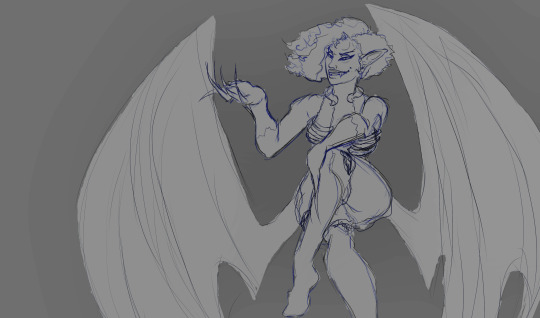
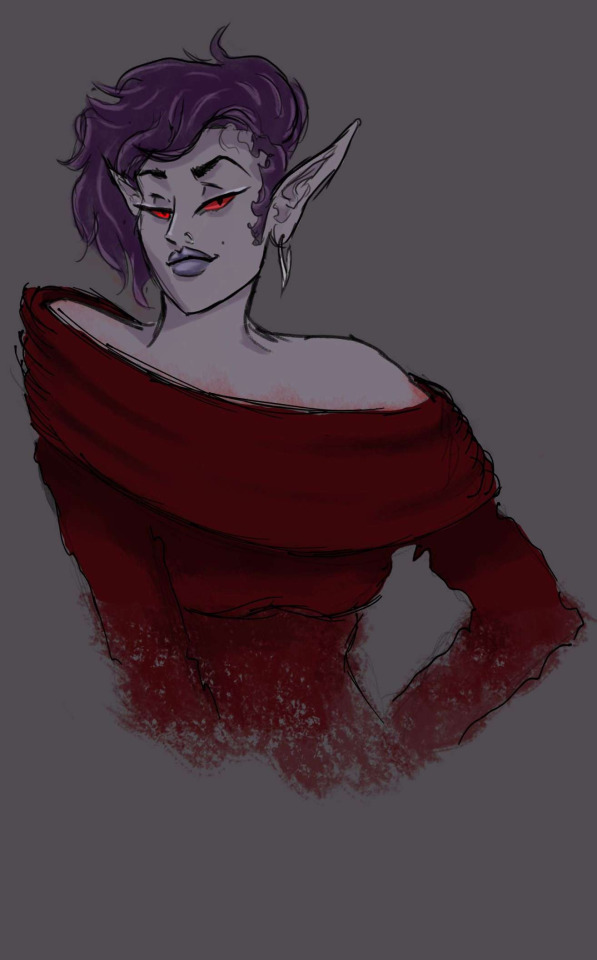


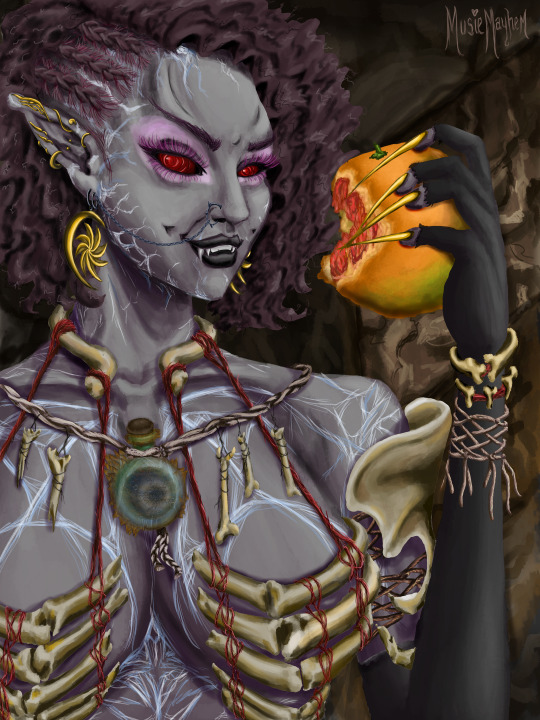

(NOTE: These are not the true sizes! I had to scale them down so Tumblr would actually upload!)
You can contact Muse at:
EMAIL: mewsiemayhem @ gmail . com (please remove the spaces)
DISCORD: musiemayhem
If you can, help a fellow Elder Scrolls fan and generally awesome human being with a commission or a reblog!
#commission#commissions open#i emerge from my trash heap of drafts and scribbles on falmeris part participle to say:#help this awesome person out#i'm actually getting a commission of imerae from her!#(not joking about the falmeris part participle. i am genuinely reworking the falmer language)#BUT THAT'S NOT IMPORTANT RIGHT NOW#art! friendship!#signal boost#emergency commissions#the elder scrolls
21 notes
·
View notes